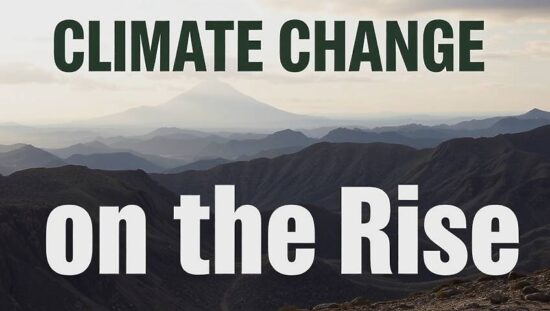The Potsdam Institute for Climate Impact Research (PIK) has warned CDU leader Friedrich Merz against retracting the heating law, as announced in the Union’s election program. “There is no need for a reversal, but rather a priority should be given to creating an effective and fair compensation” said PIK Director Ottmar Edenhofer to the “Neue Osnabrücker Zeitung” (Monday edition).
The scientist and policy advisor suggested a “building climate money” proposal: “No blanket pro-capita reimbursement by income, but a compensation that is based on the energy standard of the building.” This reimbursement should then be phased out, so that pressure is put on the building owner to consider the renovation or replacement of the heating system.
“By 2027, exactly two years from now, the CO2 price for heating with gas and oil, as well as for driving with diesel and gasoline, will no longer be set by a German law, but by the European emissions trading system” said Edenhofer to the NOZ.
Therefore, the clear statement of the government is needed, that fossil heating will become a growing burden. Because to meet the climate goals, the CO2 price “should actually already be at 275 euros per ton by 2030 and 400 euros by 2040, if the emissions are not significantly reduced by other measures.” “The tragedy is that no one who installed a gas heating system recently has this on their radar” lamented Edenhofer.
“I can only warn against retreating and telling people that the energy transition will be rolled back. Retreating will not lead to the future.” That still, twice as many households are installing a new gas boiler instead of an electric heat pump, is “completely dysfunctional, both for climate protection and for the affected individuals’ wallet, as the heating with gas will only get more expensive.”
Edenhofer also criticized the climate ignorance in the Bundestag election campaign. “Some act as if climate protection belongs to the luxury goods of the motto: When we’re out of politics, when the economy is booming again, then we’ll make climate policy again” said the climate researcher to the NOZ.
“We talk – very rightly – about the difficulties of the energy transition. But we talk about nothing more about what an unbridled climate change costs.” The fact that an unbridled climate change has already caused massive damage, which will only get bigger – a production decline of 20 percent within 25 years compared to a world without damage – “has somehow been forgotten in this Bundestag election campaign” concluded the PIK director.
“The damages of climate change will be six times as high by 2050 as the costs of climate protection.” Of course, the avoidance of future damage only benefits the homeowner who has to install a new heating system now. “But we cannot play off the now against the future.”
Edenhofer reacted with his criticism primarily to the announcements of the Union, that a win in the election would mean rolling back the EU combustion engine ban and the heating law. “There is a conservatism that primarily tells how wonderful it was in the past. For me, nostalgia is the longing for a place where we never were” said the scientist. “Such a conservatism will not help us, it will lead us into the abyss.”
His approach to a conservative climate policy: “Who wants to change a lot, must tell the people what is being preserved. People can only accept changes if they do not have the feeling that the ground is being taken from under their feet. This is the opposite of saying everything will be rolled back and creating the illusion that it could be like it never was.”
Germany can only come in the future if it reinvents itself. “The government can only take the people with it if it tells them what remains, what is being preserved, and that climate protection is not a mindless rushing into the future” said the researcher and institute director. “There will always be mistakes made. But the transformation is not induced by the Greens, but by new global economic developments, geopolitical shifts, and of course, the Earth’s heating up.





